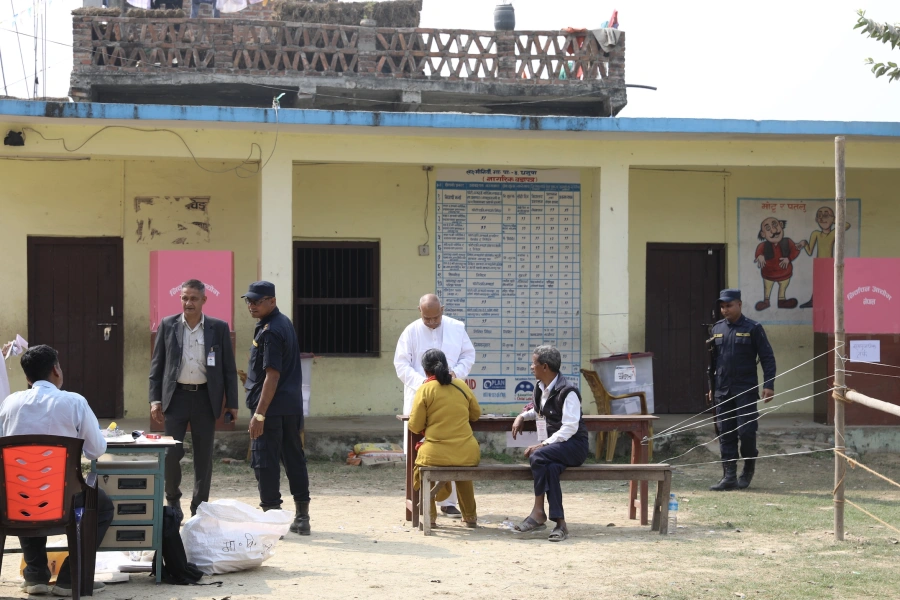Coffee consumption, overfishing, plastic pollution, and groundwater overuse are some of the examples of the “tragedy of the commons.” Humans drink over two billion cups of coffee every day contributing to habitat loss that has endangered 60 percent of plant species. Similarly, overhunting and overfishing will likely push many species to extinction.
The world’s most prominent scientists have warned that Earth’s resources are being gobbled up at an unsustainable rate and if this foolish behavior prolongs, the global collapse of human civilization and potentially human extinction is inevitable. Several United Nations organizations have also provided similar warnings. Experts believe this crisis has manifested because governments have been deliberately allowing businesses to selfishly deplete Earth’s limited natural resources without thinking about the future. Now, civil society and activists are calling for the injection of radical thinking into the governance of the commons to resolve the crisis. The Government of Nepal needs to think along that line as well.
According to the UN Environment’s Global Resources Outlook 2019, “the extraction and processing of materials, fuels, and food contribute half of total global greenhouse gas emission and over 90 percent of biodiversity loss and water stress.” Likewise, the United Nations Convention on Biological Diversity has “cautioned that the current trend of global urbanization will significantly impact biodiversity and ecosystems resulting in indirect effects on human health and development.” This type of destructive human behavior is known as “the tragedy of the commons.”
This economic theory, first conceptualized in 1833, by the British writer William Foster Lloyd in an attempt to explain people’s tendency to make decisions solely for their benefit regardless of the negative impact on others. Lloyd believed such actions will likely continue because people often justify their selfish actions based on a misguided belief that human beings inherently do not act in the interest of the group, and sadly, this type of short-term thinking is now risking the long-term well-being of life on Earth.
Mayor Dahal and Deputy Speaker of UK House of Commons, Nigel, m...

More than a century after Lloyd's theory, Garett Hardin, an American scientist, in 1968, published a seminal work titled “The Tragedy of the Commons” discussing the problem of resource overexploitation due to unregulated human population growth. He writes society has to bear collective costs when commons like grasslands, forests, water resources, and the atmosphere are wrecked by the government’s inability to formulate far-reaching policies to curtail such selfish behavior from the sapiens. Most of the existing policies have proven to be detrimental to the environment and the natural resources as they are often formulated without considering the fact that Earth’s natural resources are finite.
Coffee consumption, overfishing, plastic pollution, and groundwater overuse are some of the examples of the “tragedy of the commons.” Humans drink over two billion cups of coffee every day contributing to habitat loss that has endangered 60 percent of plant species. Similarly, overhunting and overfishing will likely push many species to extinction. Also, seven million premature deaths are caused every year by air pollution. Groundwater supply is also decreasing faster than ever and governments are least bothered even though groundwater is the world’s most important source of fresh water supplying billions of people with drinking water as well as irrigating the largest share of the world’s food supply. Furthermore, marine ecosystems are increasingly suffering extensive damage due to the overuse of plastic waste. Governments need to pay attention because mismanagement of natural resources often results in armed conflicts.
The report titled “Conflict over Natural Resources at the Community Level in Nepal including its relationship to armed conflict” published in 2006 by the United States Agency for International Development points to the fact that competition over natural resources at the community level contributed to fueling the Maoist insurgency. The conflict has always existed due to the mismanagement of natural resources, but it turned violent in the 90s due to rapid population growth that increased resource scarcity and social inequality. Unequal access to natural resources and services coupled with very restricted education and economic opportunities outside urban areas resulted in widespread rural poverty. According to the USAID report, the failure of successive Nepali governments to address these challenges in a meaningful way and the resentment over discriminatory natural resource access were the underlying political causes of the Maoist insurgency in Nepal.
The term “tragedy of the commons” has now become a universal explanation for the origins of the ecological crisis currently confronting the human species. Hardin’s theory proposes that the only way to resolve this crisis is by establishing the institution of private property or through a strong authoritarian state that rules over the populace with an iron fist to direct them toward a path that results in a minimal collective cost for society. Unfortunately, despite the government’s efforts, natural resource management is yet to become effective. Therefore, scholars and policymakers now believe the problem of population growth and the resulting “tragedy of the commons” cannot be fixed only with technical solutions. More importantly, a careful re-examination of the fundamental principles of morality is required. As the ancient wisdom goes, a society without moral values is destined to fail.
Hardin’s dualistic understanding of common resource management, however, has gained criticism in recent years for its oversimplification. Those criticizing Hardin’s theory argue that local communities are often able to come up with complex strategies to manage the commons beyond the dichotomy of state control and private property regimes. Historical evidence suggests many tribal societies have successfully managed their common resources for many millennia. Other findings show a federal structure where local communities are provided with autonomy to design their community with minimal government intervention is ideal for governing the commons. Elinor Ostrom, an American political scientist and the first woman to win the Nobel Prize in Economics is a proponent of such belief. She produced a seminal work titled “Governing the Commons: The Evolution of Institutions for Collective Action” in the 90s with numerous examples of communities successfully managing common resources across the world. In the book, she also claims communities could self-govern their use of common-pool resources with new institutional economics.
Common-pool resource institutions are sets of complex rules that regulate the use of common-pool resources. The institutions can be formal (laws, contracts, and authority) or informal (norms, customs, and traditions and the social pattern that governs human behavior). Ostrom’s genius lies in proposing a polycentric approach to common governance by identifying common institutions between the market and the state. In a nutshell, “a polycentric system ideally is a system in which governmental units both compete and cooperate, interact and learn from each other, and responsibilities at different governmental levels are tailored to match the scale of the public services they provide.”
The Government of Nepal has become arrogant and least bothered about properly governing the commons. Social inequality based on ethnicity, caste, and gender is still deeply rooted in Nepali society. This resentment grew tenfold during the Rana oligarchy and continued even as newly introduced government services including education and health care remained largely beyond the reach of the poorest during the Panchayat era. The rejuvenation of democracy in the 1990s raised expectations for greater equality. Unfortunately, democratically elected governments failed to deliver on their promises. The growing frustration among people created a base of support for the Maoist insurgency among the marginalized. Sadly, the Maoists too have failed to deliver on the grandiose promises. They have failed to create employment in Nepal and have forced hundreds of thousands of youth to work in inhumane conditions in the Gulf for more than a decade. The “Bhagbanda” politics and the people’s all-time low trust in politicians and government have forced the growing silent majority to call for the reinstatement of Monarchy in less than two decades of the abolishment. Simply put, the political parties are selling wolf tickets.
(Shah is a Policy Wonk.)




-69a940c05c766-1772700256.webp)






























